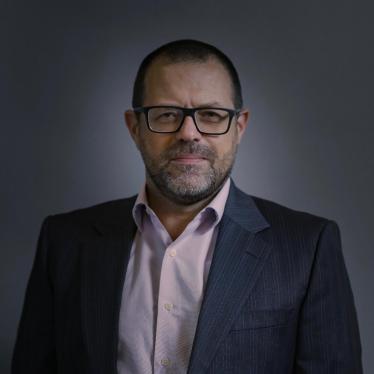While the United States has often fallen short of its stated commitment to defend democracy and human rights globally, under President-elect Donald Trump it seems poised to hit a new low.
Trump’s first presidential term was riddled with rights abuses. His pledges during his 2024 campaign raise even greater cause for concern. Authoritarian, anti-rights politicians around the world may feel empowered by his electoral win.
It is crucial for other leaders to step up and defend human rights and dignity for all.
As a large democracy in the Global South that has withstood serious attacks on its own democratic institutions, Brazil has a particularly important role to play in Latin America and beyond. Under President Lula, Brazil has sought to regain its international standing after being a virtual pariah during the four years of his predecessor, Jair Bolsonaro. The government will be in the limelight as host of the G20 summit on November 18-19 and BRICS and the United Nations Climate Conference (COP30) next year.
Yet, a significant drag on Brazil´s leadership has been a lack of consistency.
Brazil has defended international law and condemned war crimes in Palestine and Lebanon, for example, but has not shown the same zeal in Ukraine.
During Lula’s first term, Brazil was an important advocate for the International Criminal Court (ICC), but 20 years later his government abstained from the first-ever vote on the annual UN General Assembly resolution on the ICC. In 2023, Lula claimed that he “did not even know about the existence” of the ICC.
Furthermore, Lula reassured Russian President Vladimir Putin, subject to an ICC arrest warrant for his alleged role in the forcible transfer and deportation of Ukrainian children by Russian authorities, that he would not be detained if he visited Brazil, though as an ICC member, Brazil would be obliged to arrest him.
The Foreign Ministry said Brazil would be “very happy” if Putin attended the G20 summit in Rio de Janeiro. The government later backtracked, saying that it could not rule out that a Brazilian judge could issue an arrest warrant against Putin.
Trump, during his first term, imposed sanctions on the ICC. Following renewed attacks against the ICC by US lawmakers, it would be unsurprising if he doubled down on ICC sanctions in his second term. Brazil and other ICC member states will need to stand up for the ICC to protect international justice from being severely weakened.
The environment is another area in which Brazil’s leadership will be critical, given Trump’s virulent opposition to efforts to curb climate change. Yet, Brazil´s aspiration to become a “sustainability giant,” as Lula put it, is also hindered by inconsistency.
While his administration has made progress in curbing Amazon deforestation, it plans to invest billions of dollars in new oil and gas wells, contributing to global emissions for many years to come, whether the fossil fuels are burned in Brazil or abroad.
Brazil´s foreign policy has evolved in the two years of Lula´s presidency.
At the UN General Assembly in September, Lula adopted a more supportive line on international law, condemning the “invasion of Ukrainian territory,” the Hamas-led attack on civilians in Israel on October 7, 2023, and the Israeli government’s “collective punishment” against Palestinians
On Venezuela, Lula called concerns about the undermining of democratic institutions a “constructed narrative” in 2023, even though President Nicolás Maduro had coopted all state powers and was responsible for gross human rights violations. But since Maduro claimed to have won reelection in a July vote without showing the election tallies to prove it, Lula has distanced himself from the Venezuelan ruler.
Brazil can also contribute to improving the lives of people around the world as an advocate of progressive taxation and the fight against inequality, issues that are dear to President Lula, as well as the rights of refugees and migrants, and women’s autonomy and the right to make decisions about their own lives, in the face of a Trump administration that seems intent on going in the opposite direction.
And Brazil can make important contributions to address the security and humanitarian crises in Haiti through a more forceful engagement in the Caribbean country.
Brazil should also work with other countries to fill in gaps in humanitarian assistance and human rights protection in other countries and regions.
Brazil should publicly criticize abuses that the US administration commits, including if Trump delivers on his promises of mass detention and deportation of millions of people, which would tear apart families, and his threats to use the Justice Department to retaliate against his political opponents.
Crucially, Brazil also needs to lead multilateral efforts to protect the human rights of people suffering under repressive governments that claim to be across the political spectrum to Trump, such as Cuba, Nicaragua, and Venezuela in Latin America. Nor should it accept Putin’s attempts to don the mantle of anti-colonialism and anti-imperialism for Russia.
Having coherent and credible international positions also means that Brazil needs to protect human rights at home, particularly through public security policies that are effective and respect rights.
Brazil should stand with all victims of human rights violations, regardless of who they are, where they are, and who is threatening them. A courageous, consistent voice is needed now more than ever.






